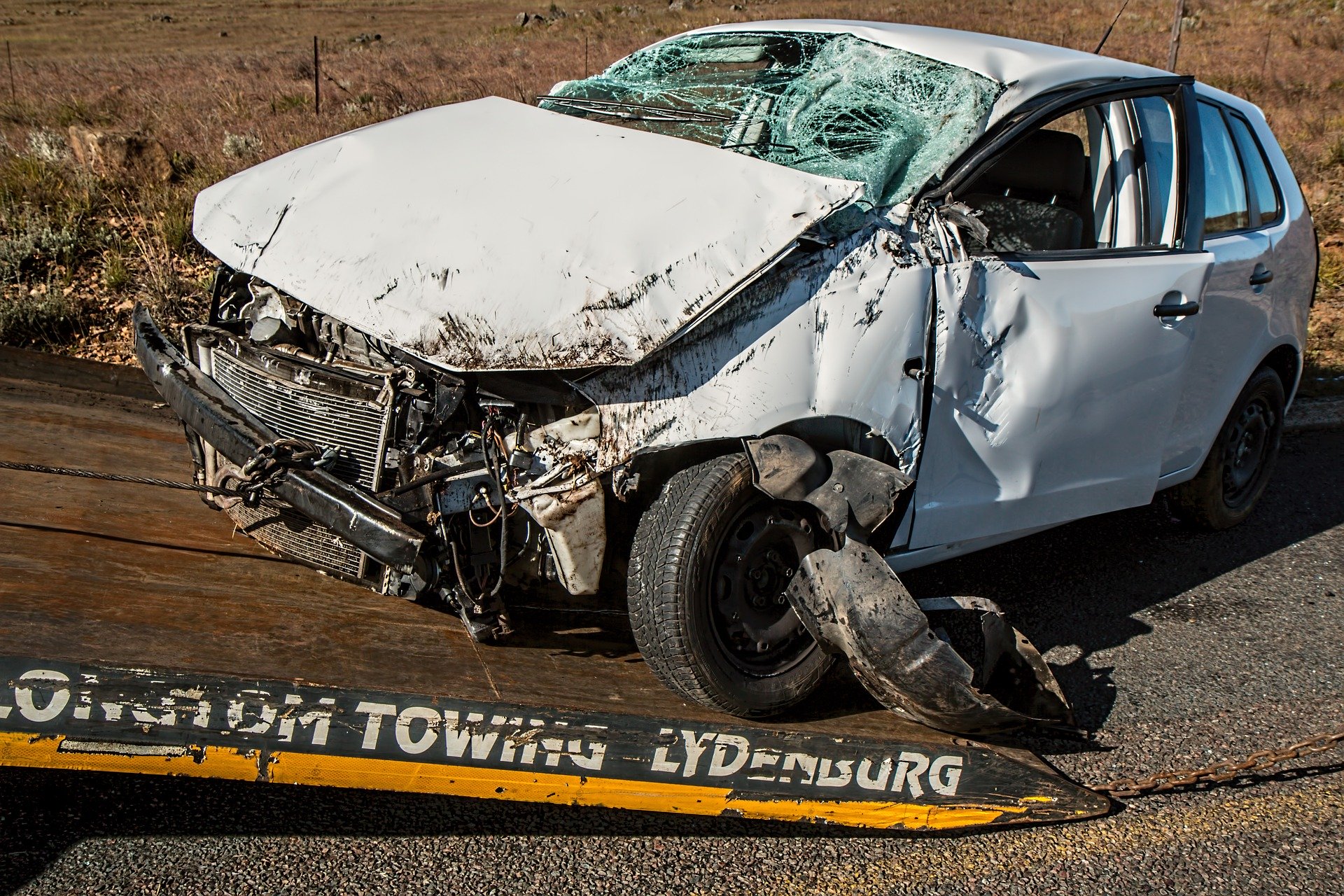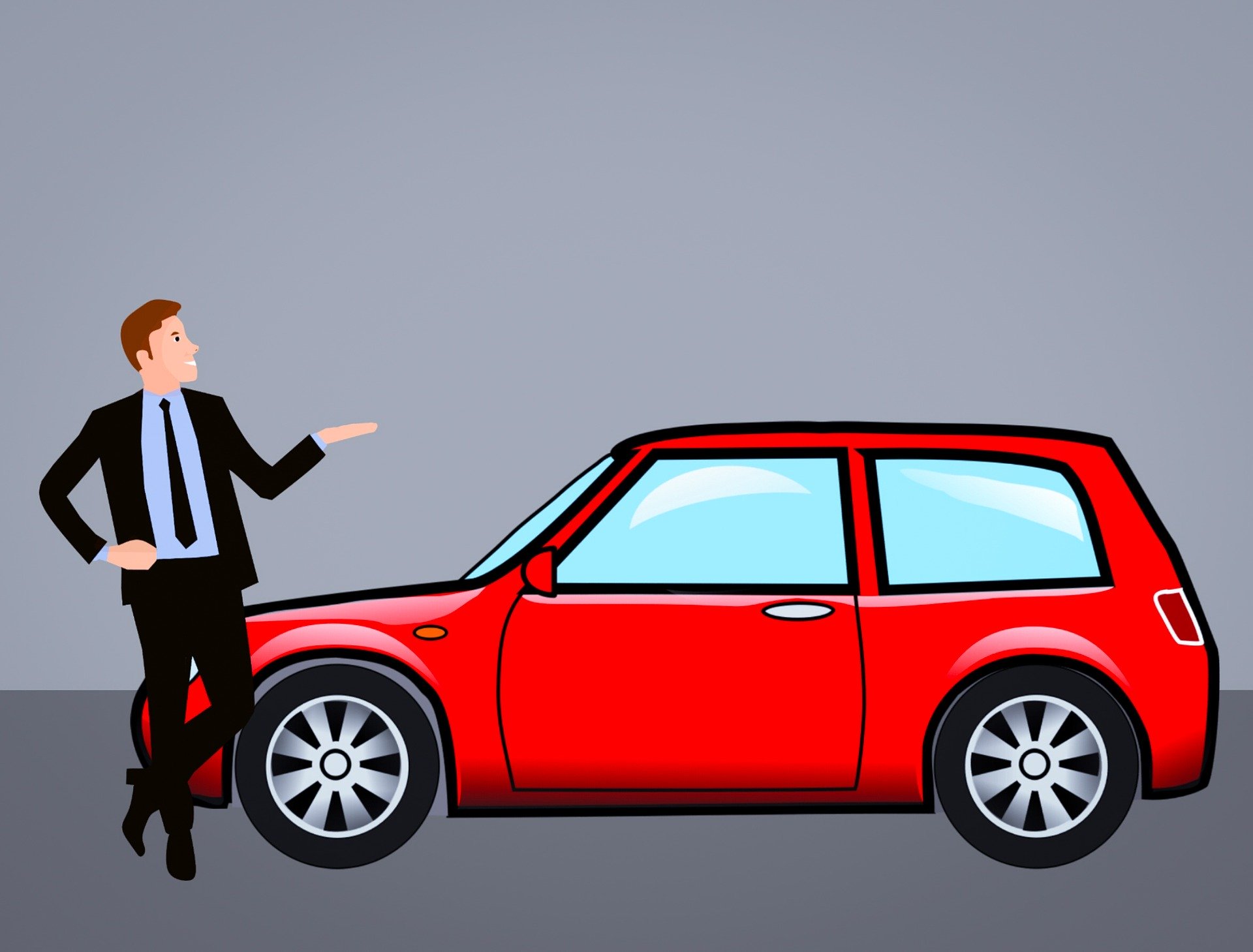Louis and Angelina (not their real names), reached out to me in April as Louis had suddenly lost his job due to COVID-19, and was now on CERB. As he was the lone income earner, this was a HUGE deal for them. Angelina is a stay at home mom with two small kids, and the $2k from CERB is less than half of their usual takehome pay. In this video, I go through their financial situation and give them some real actionable steps they could use to move forward in this storm, and where they can move in the future as Louis heads back to work.
emergency
Do I Stop The Babysteps During COVID-19? Or Maybe Have a Larger Emergency Fund?
Some quick value for you today! When you look at your personal financial life today, the question is should I change or stop the baby steps? Look at your life today and answer this one simple question.
Watch the video below:
(Click here to watch on YouTube)
Related Videos
- I go over this exact topic in much more detail in the following video: “But I Might Be Losing My Job!” – What Is An Emergency While Paying Off Debt?
- How To Make A Budget You’ll Actually Stick To
To Repair or Replace? That Is The Question…
It’s 7am, you’re heading to work, you get in to start the car, and it won’t turn over. Maybe it’s just the battery, but you’ve had trouble with this car for years. You can’t get it started, so you tow it to the repair shop, and at 3pm you get the call back saying it’ll be $1200 to repair. You can’t afford that! You’re trying soooo hard to get your finances under control and this has to happen!
What do you do?
In this video, I discuss how to being to answer that question. Note: If you’re a “car person,” you will likely find this video very overly simplified. This video is for the rest of us. 🙂
See Also: “I Need A New Car! What Do I Do?”
“I Need A New Car! What Do I Do?”
Are you sure you need to buy?
To add to the usefulness of this post, I recently made another video addressing the topic of “To Repair Or Replace?”. Be sure to check that out here if you think it would be a helpful place to start.
What are your absolute necessities?
First things first: we need to figure out what are the absolute requirements. You NEED a vehicle. What does that look like for your family? Is a 2 seater ok? Or do you need a minimum of 7 seats? Do you need massive trunk space for a stroller? Or maybe just a tiny one will do? Do you need a truck to pull heavy stuff, or is the desire for a truck just a WANT? Good gas mileage is usually such a small thing that, unless you’re driving a Hummer, it doesn’t change much. Safety is certainly a necessity – we’ll deal with that later.
Is debt an option?
How do you feel about debt that you’re in this position of needing a new vehicle? If you are happy to use debt, you haven’t read enough of my material and haven’t experienced enough of debt. Car loans will keep you middle class forever. Don’t do it. It’s a trap.
If you think car loans are a necessary evil, you HATE the idea of using debt, but you don’t see another option, keep reading! You are the very person I am writing this for!
Minivan? Car? Something else?
Take a look at your family needs. Which would meet those needs best? If a car would do it, then a car would do it! But if a car would make things very difficult, a minivan might be a better idea. Do you think you NEED an SUV? In my experience, that might be a want, not a need. But if you really want an SUV, I’m not opposed to it, just be sure to keep reading.
What’s Your Cash Budget?
So if we’ve thrown out the idea of passing the buck to future YOU to pay for it by using debt, then we need to spend CASH on this. How much do you have to spend?
Was Your Car Written Off?
One of the most common reasons for being put into a situation where you need a new car is when your current car is written off in an accident. First, when a vehicle is written off, whatever money given should go towards the loan first. If there is still debt left, just count your lucky stars that the vehicle getting written off got you out of the majority of this loan. If there is no debt left, then whatever cash you have left is the start of your cash budget.
A small note on this: if they gave you, say $5,000 for your written off vehicle, there are only two possibilities: it was actually worth $5,000, or it was worth more. If you really think it was worth more, fight for it! Show the insurance company why, find comparable vehicles on Kijiji/Craigslist/FB, and do whatever you can to convince the insurance place to give you more cash! If your car was worth $8,000, make sure you get $8,000 for it.
But, if it was worth $5,000, then admit you were driving a $5,000 vehicle…and other than the fear of knowing the history of a vehicle, driving another $5,000 vehicle is not out of the question. People get all bent out of shape at the suggestion of finding a $5,000 vehicle on Kijiji and buying it to drive your family in…”It’s a death trap!” people say… “I’m not going to risk the lives of my kids in a $5,000 vehicle! I’d rather go into debt then risk my children’s lives!” Nonsense. There are perfectly safe $5,000 vehicles. In fact, maybe last week you were driving a perfectly safe one. Bottom line: If you were driving a $5,000 vehicle last week, then driving another one next week is not an unreasonable plan at all.
Cash Outside Your Emergency Fund
First, you certainly need an emergency fund. Be sure to check out this video for how much emergency fund you need. Make sure you have clear in your mind how much of the cash you have on hand is in your emergency fund and how much is additional savings. Then, you only get to touch the emergency fund if you can classify to yourself that getting a new vehicle is actually an emergency.
And that’s possible. Here’s some example situations where I wouldn’t be afraid to call this an emergency:
- Your car was in an accident, has been written off, but due to some administrative delay, you aren’t going to receive money for your vehicle for a substantial period of time (where renting a vehicle for the amount of time would be silly).
- You took the car to the shop to get something repaired, and when they looked inside, they found issues that, not only were very expensive to repair, but were so bad that they couldn’t let you drive home with the vehicle as it was.
(Email me your situations that I can add to this list!)
Do you need more cash?
If the amount you have saved together with your emergency fund if you’re using it isn’t enough and you need more cash, here are a few options to get some cash quick:
- Pick up overtime at your current job. Usually this is the most profitable and quickest way to get some extra money.
- Sell some small things around the house. Use your smartphone and take pictures of stuff around the host, post them for sale on Facebook Marketplace (and maybe other sites like Kijiji).
- Sell some big things around the house. Consider selling larger items to get the cash quickly. Trailers, boats, ATVs, etc.
But don’t go too fast, especially not so fast that you NEED debt. Go slower. It’s even better to rent a car for a short period of time and save up the cash! For instance, if I wanted to pick up a basic economy car tomorrow for a week, I can do so for under $200, and 2 weeks for $380 taxes in. Or maybe rent a car for the few days you really need your own vehicle, and use Uber/TappCar the other days to get around? If you will get another pay cheque in 2 weeks from which you’ll be able to use a good amount of cash, this can be worth it.
Should I buy new or used?
So you’re considering buying new… OK, do this thought experiment with me: Imagine you were still driving your previous car, everything was working well, but you wanted to buy a brand new car 2 years from now. What’s the cost? $15,000? $30,000? $45,000? Get a real number for the brand new vehicle you want to purchase.
Got it?
OK good.
Now, divide that total cost by 24. It’s ok, open up the calculator app on your phone, I’ll wait.
Got it?
Good. Now, if your current vehicle was still running, are you willing and able to start TODAY putting that much money aside every single month for the next 24 months, and then when you have managed to save up all that money, to drop it all on this one single vehicle?
If the answer is no, then you can’t afford a new vehicle. Probably you’re stuck in the same old middle class thinking of “If I can afford the payment, then I can afford the vehicle.” This isn’t true.
In fact, I advise people with a net worth under one million to not buy new vehicles. I did it, and I regret it. We bought a $32,000 brand new Toyota Sienna in 2011 on an 8 year loan. Five years later we had to renew the loan, and at that point, I looked up what we owed and what it was worth:
- We owed $17,000 left on the loan, and
- The vehicle was worth right around $17,000.
Let me put that another way: while we were struggling to make headway in our financial lives and see progress paying down debt, we were paying $15,000 (=32000 – 17000) off a car loan (plus interest), that disappeared in value. In other words, if we sold the vehicle at the five-year mark, we would have paid off $15,000 in principle (plus interest), and had nothing to show for the car. That’s $3,000 per year or about $250 every single month that we were losing just in value. We couldn’t afford to burn $250 every single month!
But it’s about percentages. If you’ve got a million-dollar net worth (assets minus liabilities), then sure, you can afford to burn that money. But until you’re wealthy enough to burn that much money, don’t do it! It held us back much longer than it needed to.
So what’s the ideal car to buy? The ideal is to aim for something that is 2-3 years old. A new car loses most of its value in the first 2-3 years. Even 4-5 years would be good. Let someone else take the butt-kicking in the lost value.
But, you take what your budget allows. We are only spending CASH.
What Might Be Your Best Option…
It turns out that it’s almost always cheapest to repair, even when it’s annoying and frustrating. So here’s the exercise you need to do:
Get A Repair Cost
Get a repair cost estimate for your current vehicle to be repaired, or brought up to reasonable usable condition. Not perfect, but usable condition. “Usable” probably includes stuff like air conditioning and heat but may not include things like electric windows working, fixing cracked windshield, and probably wont include things like fixing a cracked bumper or other aesthetic issues.
Now write down your current vehicle as if it was a Kijiji post. For instance, “2005 Nissan Sentra with cracked bumper, 150k KM.”
But here’s the trick: Add the words “Know everything that has happened to it since <YEAR YOU BOUGHT IT>”
And add the cost as “<REPAIR COST>”
For example, if you bought it in 2007, and it’ll cost $2,000 to repair, you might write:
2005 Nissan Sentra with cracked bumper, 150k KM. Know everything that has happened to it since 2007. $2,000.
Often, this will result in the realization that the repair cost is a great deal to get this vehicle considering the year, the KM, and the knowledge you have about the vehicle.
I know it’s not an attractive option, but at least this gives you something to compare every other option to. In my above example, if I came across a 2004 Nissan Sentra with 160k KM for $5,000, it’s just not an option considering I could spend $2,000 and have a better vehicle than that, and one which I know the entire history of to boot.
Where To Find a Good Used Car & What To Look For
I’m not a “car person” and I’m writing this assuming you are not a “car person” either. If you are able to do repairs yourself and know a lot about vehicles, you can of course do better! But this document is something for the rest of us!
The main sources I know about in Canada are:
- Kijiji
- Autotrader
- Craigslist (not big in my area, but I mentioned it in case…)
- eBay (local pickup)
When you search, don’t use dealers if you can help it – you’ll get a better deal. Dealers aren’t evil or anything, but they need to make a profit to stay open! For instance, you can filter on Kijiji by private seller instead of dealer:

Look for something with low KM. Often a low KM is an indicator of a car with lots left in it.
Also, I don’t know about you, but buying something with a label of Salvage or with major accidents on it bothers me, which is why I always do the CarFax to get all the details I can on the history of the car (in fact, the first time we bought a car for cash, we did 4 or 5 of them – totally worth it!). I’m looking for something with very few and very minor accidents. It might take a while to find, but it’ll be worth it.
Remember that you’re interested more in functionality than sexyness, especially if this is an emergency. If the colours are faded and the seats are worn, but there are 30,000 km on it and the vehicle is in great condition, that’s perfect for a get-out-of-debt car, or for an emergency situation. Name the car like “Old Rusty” or something similar. Here’s a link with some ideas.
It might also be worth it to check out a major city nearby. If you live in the middle of nowhere, it could even be worth taking a weekend trip to a city. The additional cost of staying in a hotel could be far offset by the large selecion of vehicles available (and thus the cheaper price).
What If I Want Or Need To Go To A Dealership?
Ok, but I came across this great video that describes some very important things to keep in mind if you go to a dealership and plan to pay cash. Make sure to keep in mind that, at least at some dealerships, their goal is to make money, not get you a good car:
Some Final Words
Lastly, buy as slowly as possible. Renting a car while you look could work out to be totally worth it. It’s not a waste of money if, because of it, you spend substantially less on a substantially better car.
You got this! Shoot me an email rob@wepayoffdebt.ca and let me know if I can help more!
“How Big Of An Emergency Fund Should I Have?”
There are many schools of thought around this question, but to me, it BIG TIME depends on where you’re at financially with your DEBT load, and then, if your out of debt, lots of personal and professional factors.
“But I Might Be Losing My Job!” – What Is An Emergency While Paying Off Debt?
Debt freedom is so crucial and important in today’s world that, if you’re not out of debt, you need to GO NUTS to try to get out of debt!
But what about when it seems like it would actually be unwise to throw more of your cash toward the debt? Only $1000 emergency fund? How is that safe?
Here’s the problem: sometimes the emotions you’re feeling are exactly the same way whether you’re just scared and anxious, or there’s an actual emergency on the horizon. How do you determine where you’re really at? What if you’re going to lose your job?
In this video, I help you tackle the challenge of determining when what you’re feeling is an excuse compared to when it’s wisdom.
Watch the video below:





